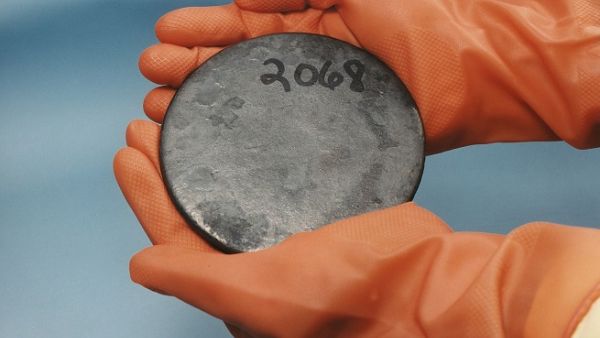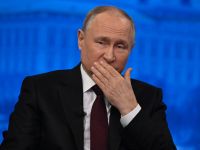Saudi Arabia has unveiled plans to extract its own uranium as part of efforts to bolster its nuclear program and attain self-sufficiency in the production of nuclear fuel.
Hashim bin Abdullah Yamani, head of the Saudi government agency tasked with nuclear plans, KACARE, made the announcement in an address to an international nuclear power conference in Abu Dhabi on Monday.
- Jordan, Saudi Arabia To Cooperate On Nuclear Energy
- Russia, Saudi Arabia To Develop Cooperation On Peaceful Use Of Nuclear Energy
“Regarding the production of uranium in the kingdom, this is a program which is our first step towards self-sufficiency in producing nuclear fuel,” Yamani said, adding, “We utilize the uranium ore that has been proven to be economically efficient.”
Saudi Arabia has approximately 60,000 tons of uranium ore, according to the latest figures provided by Maher al Odan, the chief atomic energy officer of KACARE.
Riyadh plans to award a construction contract to foreign firms for its first two nuclear reactors by the end of 2018.
Industry sources say Riyadh is reaching out to potential vendors from the US, South Korea, China, France, Japan and Russia for the projects.
Elsewhere in his remarks, Yamani said Saudi Arabia would soon pass laws for its nuclear program and set up regulations for its nuclear agency by the third quarter of 2018.
- Saudi Arabia Says Atomic Program Will 'Optimize Use Of Energy Sources'
- 92 Percent In UAE Back Nuclear Energy Program: Poll
“The IAEA (International Atomic Energy Agency) also has been requested to conduct an integrated review of our nuclear infrastructure during the second quarter of 2018,” he added.
The official, however, did not elaborate on whether Riyadh also seeks to enrich and reprocess uranium which could eventually lay the groundwork for possible military uses of the material.
The majority of atomic reactors require uranium enriched to around 5 percent purity. The same technology in the enrichment process can also be used to enrich the heavy metal to higher, weapons-grade levels.
Saudi Arabia is said to be considering building some 17.6 gigawatts of nuclear capacity by 2032, the equivalent of about 17 reactors.
The finances of Saudi Arabia have been hit by a downturn in oil prices that were above $100 a barrel in 2014, but sank below $40 two years later.
- Why Nuclear Power Is The Way To Clean Energy For Egypt
- Iran In Full Compliance With Nuclear Deal, IAEA
The plunge in global oil prices prompted Riyadh to rein in public spending and take economic measures such as diversification, privatization of massive state assets and tax increases.
Saudi Arabia, a signatory to the Treaty on the Non-Proliferation of Nuclear Weapons (NPT), would become the second country in the Gulf region to go for nuclear energy after the UAE, which is to activate its first nuclear reactor next year.
Abu Dhabi has, however, committed not to enrich uranium itself and not to reprocess spent fuel.








